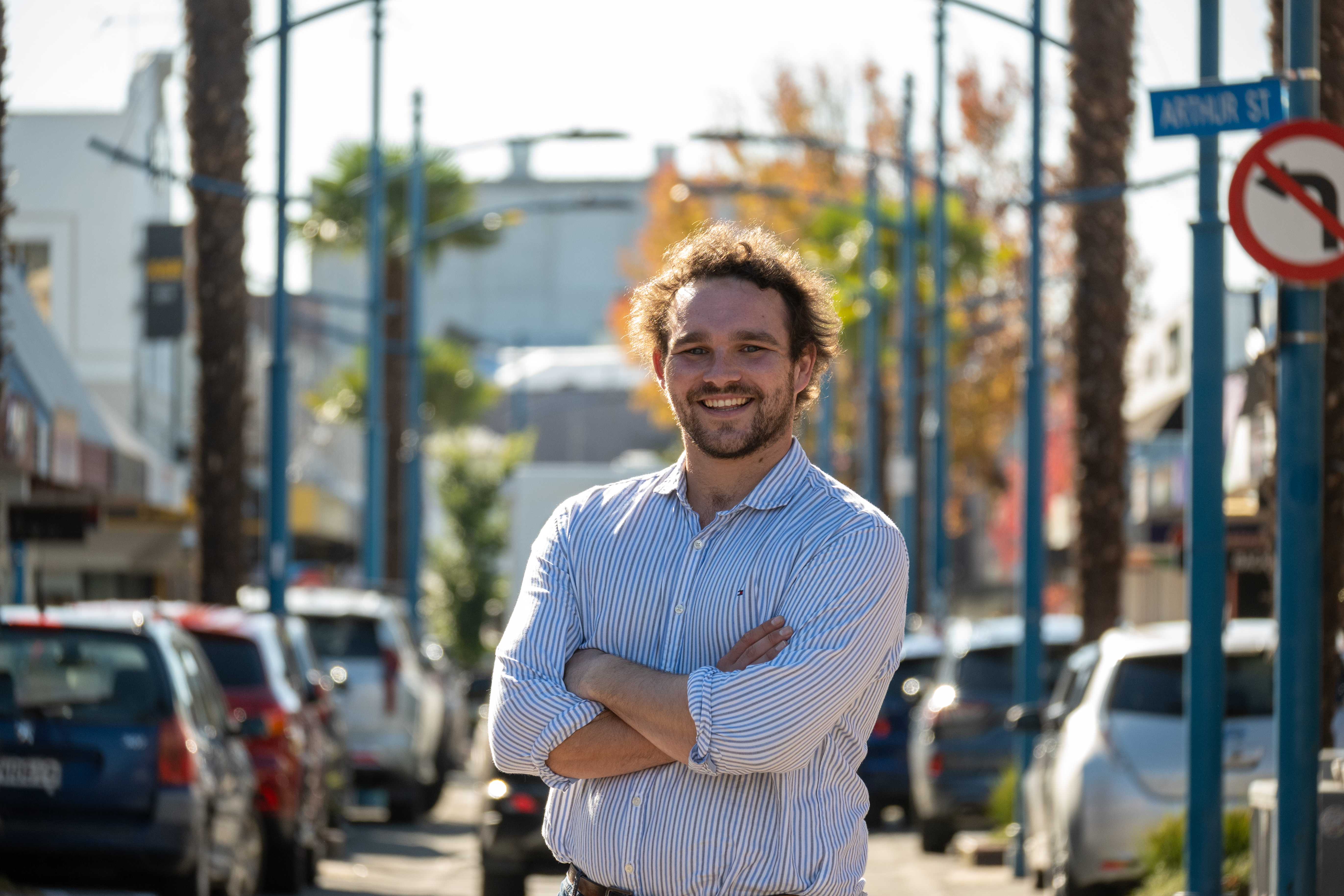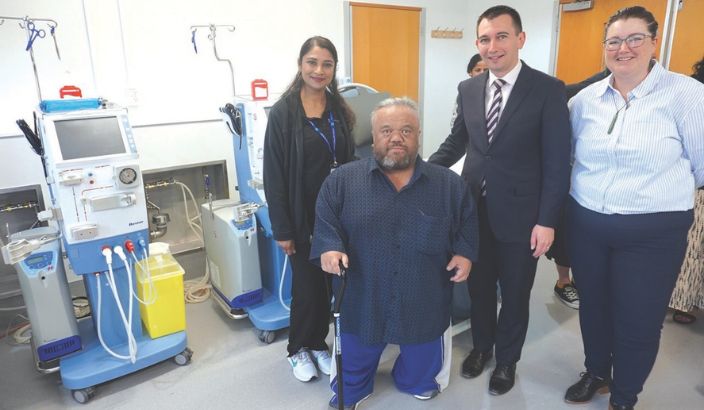Patients’ wishes bring kidney care closer to home


‘Tātari Toto’ operations coordinator Shivana Ram, patient Matthew Town, visiting Health Minister Simeon Brown and Marlborough PHO Medical Director Jordan Gibbs in the new Wairau Hospital clinic. Photo: William Woodworth.
With the cut of a ribbon Wednesday morning, the need for local kidney dialysis patients for make 10-hour trips thrice weekly for out of region care was ended.
The opening of ‘Tātari Toto’ - the brand new, four-chair haemodialysis unit at Wairau Hospital’s Urgent Care operated by Marlborough Primary Health - saw delegates from contributing organisations stand alongside patients, health professionals, and visiting Health Minister Simeon Brown to celebrate a significant day in Marlborough healthcare.
MPH Chair Mark Peters and Medical Director Jordan Gibs say bringing the unit to Wairau Hospital off their own efforts is in Marlborough’s best interest, due to a combination of local advocacy and understanding of the wider state of health.
“We thought that the best thing to do is put some funds in for at least the first couple of years, and we’ll review if some more is needed then so be it because this is important for the people of Marlborough,” said Mark. “Our role was governance, to make sure the facilities are in place for the really good professional staff that we’ve got, led by Chief Executive Beth Tester, giving them the facilities and the resources they need”.
“This has been a collaboration of over 18 months to get here and our patients have been the driving force behind why this is important and why we need to bring their care closer to home”, said Jordan.
“Two years of funding is us showing that we have real skin in the game and are committed to success ... we have at least a few years already covered which helps to promote that success - this clinic isn’t going anywhere and if we can do this, there’s nothing else we can’t achieve for the region’s health.
“We’re fortunate that we’ve got some resources that we had committed funds, for special projects where we wanted to make really good inroads into local health benefits for multiple people - this facility is as good as it gets in that regard”, added Mark.
“We don’t bury our head in the sands – the Government have got so many demands on them for money in the health sector, but local patients are who it’s all about – sitting in a dialysis unit three days a week for six hours and travelling a minimum four hours is a tough ask for anyone.
“This is a result of local people being involved for local people, and that’s a key thing to show we can do in any provincial organization.”
Dialysis patient and key advocate Matthew Town was pleased to get much of his family time back from the thrice-weekly travels to Nelson and credited the quick turnaround from the PHO.
“It’s happened a lot quicker than I thought from the time they we had our first sit down in Blenheim with all the organizers and who were interested, they wanted to hear from patients like myself and others, hearing how we felt on the on the 10-hour days.
“It drains you, that’s all I can say. I had been doing two hours each way travel, plus the treatment itself, doing this for nearly three years - the first patient to have the incredible transfer service within this time, and I’m still here today.
“We were doing the Tuesday, Thursday, Saturday treatment, so being able to spend less time travelling and more with our families who have, over two or three years, been through everything ... all the hard work that they’ve done keeping home fires burning on this side, it’s awesome.”
Marlborough Primary Health Organisation, Care Foundation, Marlborough Hospital Equipment Trust, Rātā Foundation, Health NZ, Te Piki Oranga, Marlborough District Council, Churchill Trust, and Lotteries each helped fund equipment, while clinic operations are funded by MPH for the first two years, with the expectation that the Government would fund the service from that point.
“Haemodialysis units in New Zealand are usually funded through budgets assigned to hospitals by Health New Zealand, Te Whatu Ora but Marlborough Primary Health has taken this into its own hands because the first-hand experiences of those who endure extensive travel for dialysis makes this urgent”, says Beth Tester.
“The patients we have now needing haemodialysis are the tip of the iceberg. We need to act now to be ready for an ageing population and the higher rates of chronic kidney disease expected over the next decade.
“We are delighted to finally be able to provide dialysis in Marlborough – answering decades-long calls for local access and for Marlborough residents living with kidney disease, the new facility represents hope, accessibility, and a better quality of life.”
Health Minister Brown said the ribbon cutting “reflected determination, persistence and a shared belief that access to quality health care should not depend on where you live”.
“This unit is a testament to what can be achieved when communities and health system work together with local voices and collaborate in genuine partnerships to design services that respond directly to the people that they serve.
“Today represents years of dedication and advocacy for local leaders, health professionals, iwi and patients who spoke up about the need for equitable access to care right here in Marlborough - your voices have shaped a model that truly reflects the needs and values of your community.”
